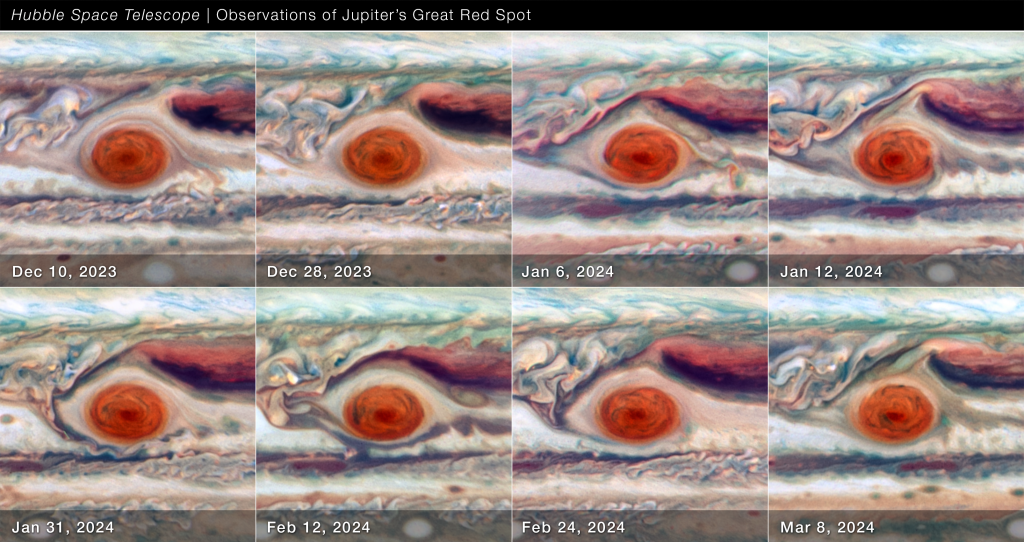Anduril and Impulse Space to collaborate on AI-driven satellite mobility
Original Publication Date: 2024-10-12 10:05

Anduril Industries and California-based startup Impulse Space announce partnership. The companies plan to pursue military and defense contracts for space missions. The collaboration will focus on demonstrating “highly maneuverable space missions” The companies plan to demonstrate capabilities of interest to the U.S. Space Force.
SpaceX’s Starship ready for fifth flight test on Sunday including sonic booms – SatNews
Original Publication Date: 2024-10-12 00:00

SpaceX will launch Starship on Sunday, October 13. The 30-minute launch window opens at 7 a.m. CT. A live webcast of the flight test will begin about 35 minutes before liftoff. The primary objectives will be attempting the first ever return to launch site and catch of the Super Heavy booster.
Blue Origin NS-27 launch — maybe Sunday the 13th will be lucky – SatNews
Original Publication Date: 2024-10-12 00:00

Blue Origin’s previous attempt on Monday to launch the unmanned New Shepard-27 was scrubbed. The new tentative date is Friday, October 11, at 9:00 AM EDT (13:00 UTC) from Launch Site One in West Texas. The weather currently is cooperative if the launch takes place on Thursday, as the forecast calls for a temperature of 65° F, clear skies, 0% cloud cover and a wind speed of 4 mph.
NSA issues updated guidance on Russian SVR cyber ops – SatNews
Original Publication Date: 2024-10-12 00:00

The National Security Agency joins the Federal Bureau of Investigation (FBI), the United States Cyber Command’s Cyber National Mission Force (CNMF), and the United Kingdom National Cyber Security Centre. The joint Cybersecurity Advisory (CSA), “ Update on SVR Cyber Operations and Vulnerability Exploitation,” highlights how Russian SVR cyber actors are currently exploiting a set of software vulnerabilities and have intentions to exploit additional vulnerabilities.
First greenhouse gas plumes detected With NASA-designed instrument – SatNews
Original Publication Date: 2024-10-12 00:00

Carbon Mapper has released the first methane and carbon dioxide detections from the Tanager-1 satellite. The detections highlight methane plumes in Pakistan and Texas, as well as a carbon dioxide plume in South Africa. Carbon Mapper’s preliminary estimate of the source emissions rate is more than 2,600 pounds (1,200 kilograms) of methane released per hour.
SES + Sky extend their partnership in the UK + Ireland – SatNews
Original Publication Date: 2024-10-12 00:00

SES has extended the company’s long-standing partnership with Sky through a multi-year contract renewal. Under the agreement, SES will continue providing capacity to enable Sky to deliver satellite channel offerings to Sky Q subscribers across the UK and Ireland. SES’s satellites at the 28.2/28.5 degrees East orbital position deliver a wide range of channels to more than 17 million TV households in UK and Ireland.
NASA’s Hubble Watches Jupiter’s Great Red Spot Behave Like a Stress Ball

"As far as we know, it's not been identified before," Said Amy Simon of NASA's Goddard Space Flight Center in Greenbelt, Maryland. "This is really the first time we've had the proper imaging cadence of the GRS," She said. "That was very unexpected, and at present there are no hydrodynamic explanations"
Can Life Exist on an Icy Moon? NASA’s Europa Clipper Aims to Find Out

Europa Clipper’s three main science objectives are to determine the thickness of the moon’s icy shell and its interactions with the ocean below. The mission’s detailed exploration of Europa will help scientists better understand the astrobiological potential for habitable worlds beyond our planet.
NASA Updates Coverage for Europa Clipper Following Hurricane Milton

NASA is targeting launch no earlier than 12:06 p.m. EDT, Monday, Oct. 14, on a SpaceX Falcon Heavy rocket. Europa Clipper is the largest spacecraft NASA has ever developed for a planetary mission. It carries a suite of nine instruments along with a gravity experiment that will investigate an ocean beneath Europa’s surface.
First Greenhouse Gas Plumes Detected With NASA-Designed Instrument

Tanager-1 launched from Vandenberg Space Force Base in California on Aug. 16. The satellite will scan 116,000 square miles (300,000 square kilometers) of Earth’s surface per day. The first greenhouse gas images from Tanager-1 are exciting and are a compelling sign of things to come, JPL says.
Does Distant Planet Host Volcanic Moon Like Jupiter’s Io?

A sodium cloud that the findings suggest is close to but slightly out of sync with the exoplanet, a Saturn-size gas giant named WASP-49 b. Additional research is needed to confirm the cloud’s behavior. Within our solar system, gas emissions from Jupiter’s volcanic moon Io create a similar phenomenon.
NASA-Funded Study Assesses Pollution Near Los Angeles-Area Warehouses

Researchers used data from satellites and a real estate database. They found that warehouse capacity correlated with pollution. The gaps widened in the holiday shopping season, up to 4 micrograms per cubic meter. NASA and the Italian Space Agency are collaborating to launch the MAIA mission in 2026.
NASA: New Insights Into How Mars Became Uninhabitable

Carbonates can retain signatures of the environments in which they formed, including the temperature and acidity of the water, and the composition of the water and the atmosphere. The heavy isotope values in the Martian carbonates are significantly higher than what’s seen on Earth for carbonate minerals and are the heaviest carbon and oxygen isotope values recorded for any Mars materials.
NASA Establishes New Class of Astrophysics Missions, Selects Studies

Two proposals for missions to observe X-ray and far-infrared wavelengths of light from space were selected. Each proposal team will receive $5 million to conduct a 12-month mission concept study. NASA expects to select one concept in 2026 to proceed with construction, for a launch in 2032.
